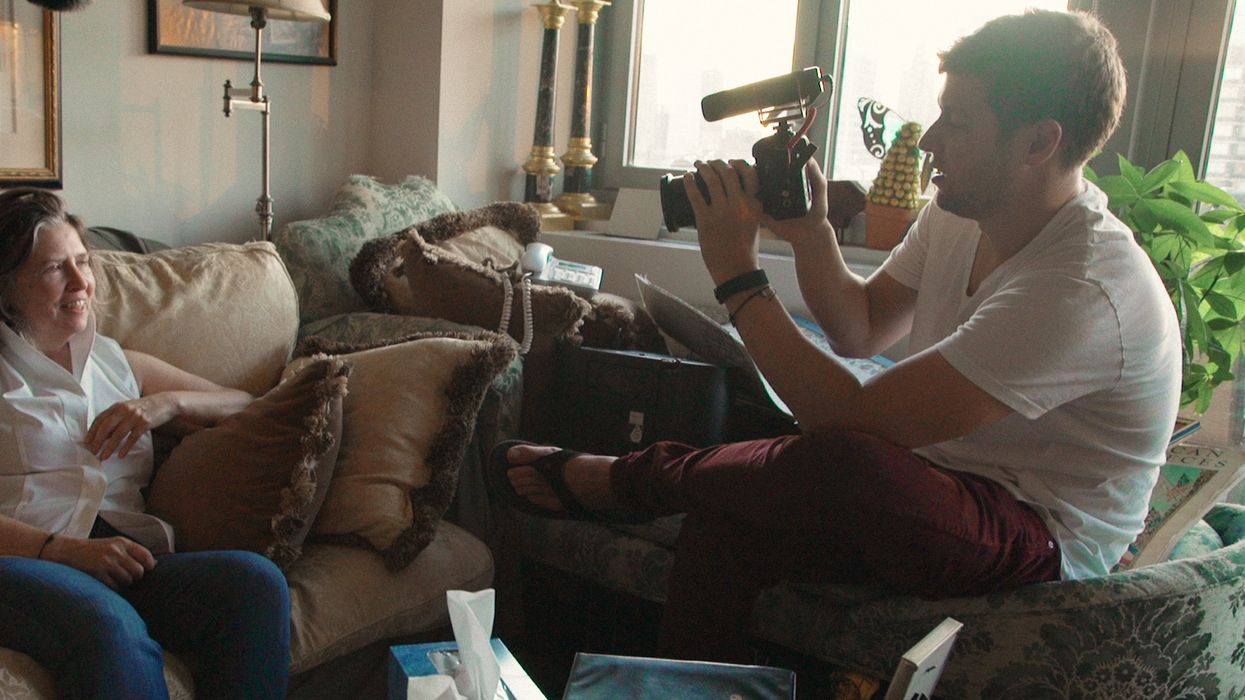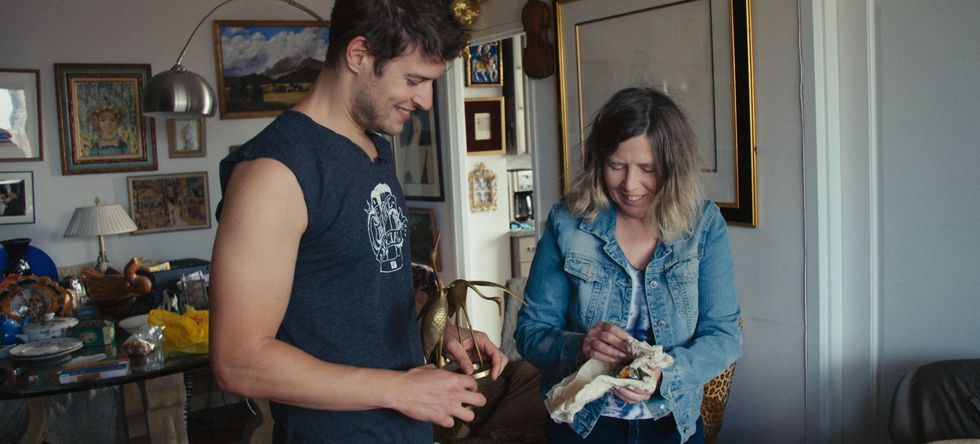10 Tony Gilroy Quotes to Encourage Your Screenwriting
Tony Gilroy is one of the most trusted screenwriters working today. His advice and insights on the craft are invaluable. So we put together a list of his wisdom to see what we could learn.

We love Tony Gilroy. Not only because he's one of the most celebrated script doctors of all time, but because he's known for telling it like it is, despite the consequences.
As a writer, I often find myself going through his work and quotes trying to find not only motivation but solace when I hit a brick wall and I try to bounce over it.
So in today's post, we assembled some of the Oscar nominee's best advice on screenwriting.
Let's jump into the quotes.

For this section, I pulled some of Tony Gilroy's best quotes from a few websites. I want to analyze them as we go to see how they apply to our own writing.
Imagination Can't Be Learned
Gilroy says:
“If there’s any single theme from tonight that would be of value, I would want you to leave here being reminded, or confirmed, that this is imaginative work. We make stuff up and it’s not magic mushroom ring, Stonehenge special, but we make stuff up, there is a level of romance and imagination to this that is not found in any screenwriting book or in any seminar or in any class or anything like that….You cannot teach someone to be imaginative. You can’t. You can kill it, you can sure kill it. And it can be trained and you can magnify it and do all kinds of things, but you can’t teach it.”
Our reaction:
There are lots of elements of writing you can learn like structure, character, and formatting, but the imagination is something you cultivate on your own. Some people have it, and some people don't. There are plenty of exercises and things you can use to extract your imagination, but if you're working on original screenplays, it all starts with the germ of an idea in your mind. So cherish your imagination, use it as much as you can, and let it guide you.
Start Small
Gilroy says:
“We need a spark, we need some place to start, and for me – for us, "me" will be "us" now – we need something really small. Small is good, small is really, really good for me. Something small and very, very specific. The big ideas don’t work. It’s death if you say ‘I want to do a movie about class warfare’ or ‘I want to do a movie about corporate malfeasance or I want to do.”
Our reaction:
Finding your spark is not easy. When I'm looking for a screenplay idea, I try the Public Domain, newspapers, Twitter, and even just a long walk. You have to zone out to get in the zone at times. Everyone has to figure out what works for them, but you better figure it out. Because Writer's block is real and you want to make sure you have a trick to keep writing day to day.
Play With Ideas
Gilroy says:
“I want to do a movie about a fixer, a fixer in a law firm, well that’s a fascinating… that’s a pretty interesting place to start. And then what do I do? I literally play with it. I sit at my desk, I sit in front of the keyboard, and I just run with it. I write around it. The analog is painting, really, with charcoal and pencil, and it’s sketching, really, really sketching. It goes up for an hour, it goes up for a month, or I keep coming back to it [and] when it stops getting interesting I stop playing with it. But it really is play, and it’s almost entirely dialogue. It’s stuff that happens, it’s like chit- chat, and ‘what if they do this?’ but I’m really swinging free and I’m really playing with things. My office is just littered, my life is littered with…you see the auto graveyard where all the parts of all the cars stretch out to the horizon, of all the broken toys. Well, that’s what this is, you’re taking this little piece of idea and playing with it.”
Our reaction:
It doesn't matter where you start. You have to have a place to finish. Gilroy used this inspiration to chase Michael Clayton. He didn't get there in a structured way, he allowed himself time to play. Let yourself work in bits and pieces and see where that takes you.

Know When to Stop
Gilroy says:
“And really what has to happen is the mess really has to stop, it really has to stop someplace, and we have to say to ourselves, ‘Where is the movie? What is the movie? I have all this stuff, I’m building this whole world, I need to know what the movie is about’. And at a certain point, you cannot pass go without doing this. You can get, if you’re in the system, you can get seduced past this because sometimes you’re coming up with a bunch of groovy stuff.”
Our reaction:
As much fun as it is writing bits and pieces, at some point, you need to come to reality and find out if you have a movie or tv show in front of you. We talk a lot about ideation and progress here, but the truth is, you have to be working on multiple projects at once. Multitasking is a writing requirement. That way you can steal from each project when you have problems. And you have different material to get out into the world.
Understand Humans
Gilroy says:
“There is one thing that you have to know, that is a deal breaker on all of it. You have to know human behavior, you cannot pass go, you cannot move forward, you are dead stopped right here, right now, if you do not know human behavior and the quality of your writing is absolutely capped at your understanding of human behavior. You will never write above what you know about people. The writers that I’m talking about that have made a great living, without writing action, are experts in human behavior…The quality of your writing will be a direct reflection of your understanding of the contradictions and complexities of human behavior the quality of your writing will be a direct reflection of your understanding of the contradictions and complexities of human behavior.
Our reaction:
Writers have to be truth-tellers. If you're not sitting down to talk about something that can emotionally affect people than you're not writing anything worthwhile. Your words and what you put on the page need to make you feel vulnerable. Once you let other people in the vulnerability you can craft characters that connect.
Outline! Outline! Outline!
Gilroy says:
“So now we have to write an outline. I’ve heard writers over the years say ,‘Oh, I don’t like to do outlines, cause it’s too constricting’. I think they’re completely wrong. If you go onto screenplay form and try to figure out your movie, it’s like putting on a tuxedo to go to a diner or something. I don’t know what you’re doing, I don’t want to be in screenplay form until the bitter end, and I’ll get to that at the very end of this thing. I do not want to want to put on my tuxedo until the very end. I want to continue to make a mess, I want to write an outline now. I want to write the movie. The faster we can do it the better. I’ve done it in as little as four days…These documents are 30, 50, 60, they can be 80 pages long, but it is the whole movie…it’s like every scene, that’s what we want. We want this loose, ugly, but really proper version of the movie altogether.”
Our reaction:
We're big believers in screenplay treatments and outlines. They help you organize your thoughts and help you look at your idea from 10,000 feet to see if it has legs. There's something to be said for just opening your screenwriting software and pressing forward, but as you become a professional writer in the business and juggle more and more projects you'll be happy to have it all sorted out before you fall into it.
Start With a Small Idea
Gilroy says:
"Big ideas don’t work. Start with a very small idea that you can build on. With Bourne, I never read any of the books; we started again. The very smallest thing with [Jason] Bourne was, “If I don’t know who I am and I don’t know where I’m from, perhaps I can identify who I am by what I know how to do.” We built a whole new world around that small idea. You just start small, you build out and you move one step after the next and that’s how you write a Hollywood movie."
Our reaction:
When I write, I like to start with an emotion. Am I chasing a father-son story? Or is it a romance about being long distance? Do I need to work out my belief in a higher power, or even my love of my dog? Figure out what you need to deal with and build from that emotion. Let writing be a form of therapy for yourself and watching your work will become a form of therapy for others. Start from that notion or question and build the world from there. And let the story follow.

Think About Writing for TV
Gilroy says:
"It’s getting harder and harder to make good movies. TV is where the ambiguity and shades of reality live, it’s where stories can be interesting. A lot of writers are very excited about TV right now and it’s a writer-controlled business. When writers are in control, good things happen. They are more rational, they are hardworking, they are more benevolent. Every time writers have been put in charge of entertainment, things have worked out, so with TV maybe we will see a writer-driven utopia."
Our reaction:
There are less and less movies being made every year. But more networks and digital need series to debut all over the world. We recently ran a series on how to write a pilot because having pilot samples is an excellent way for a writer to stand out these days. With the recent disputes between the ATA and WGA, it's more important than ever that writers work together, and that means people writing on TV are looking to help one another. If you've primarily written features, think about adding some TV samples to the mix.
Your Office is Wherever You Are
Gilroy says:
"I have an office at home, I’ve written in a million hotel rooms, I can write anywhere now. My whole goal is to want to be at my desk. If the writing is going well, I don’t want to quit. I’m older and wise enough now that if something is going well, I don’t stop. I call and say I’m not coming home for dinner and just keep going. More than anything else, I want to want to go to my desk and to not be afraid of going to work."
Our reaction:
Find a Side Job That Works for Your Writing
Gilroy says:
"I spent six years tending a bar while I figured out how to write screenplays. If you want to write, if you are a young writer and nobody knows you, find a job that pays you the most amount of money for the least amount of hours, so that you have the most amount of time left over to write. You want to live someplace where you have some sort of cultural connection and can see as many films and be around as many people as possible. You want to be someplace where you can just write and write and write."
Our reaction:
I work here. I get paid for these articles. I also work as a copywriter and do a few commercials here and there. That's my steady money. The screenwriting is my passion. It's what I would rather be doing. But as you know, a lot of times it's free work. Things have to sell. Deals have to close. And bills have to be paid. I like to take chances in my writing and bet on myself. But they can't be frivolous bets. I have a dog and a girlfriend and I don't want to lose either. I think having a steady job takes a ton of pressure off a writer. You're free to write, to make mistakes, an to handle the rejection. So get a job. You don't have to love it, you just have to use it to pay your way, so your imagination can take over in the off hours.
What's next? Get inspiration from Spielberg!
We all know that creating stories can be a slog. Whether you're trying to write a feature or trying to write a pilot, or directing both, we all come across peaks and valleys in our careers. One person whose words I keep going back to is Steven Spielberg. Spielberg's movies, even some of the lesser ones, always take big swings. It's not that he thinks he'll never fail, it's that he's not afraid to tell stories.
So click the link and learn from this fearless filmmaker!

 'Little Empty Boxes'https://littleemptyboxes.com/
'Little Empty Boxes'https://littleemptyboxes.com/ 'Little Empty Boxes'
'Little Empty Boxes'









